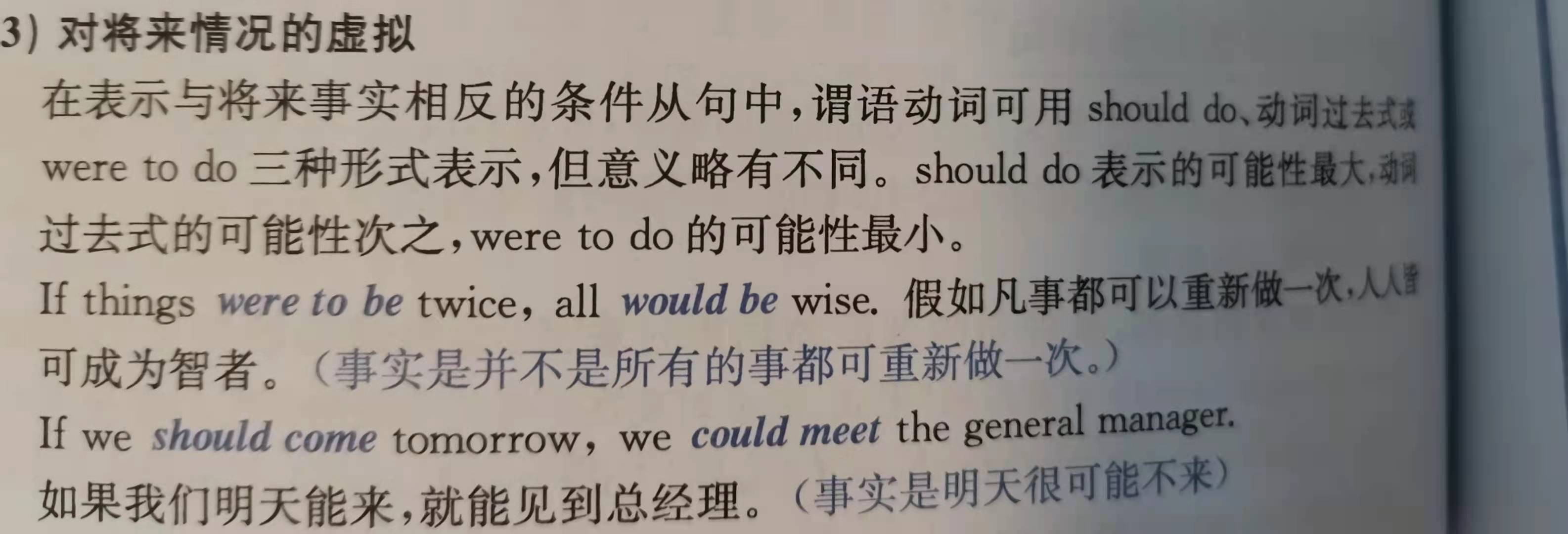3 if引导的从句问题
If表示如果:
If you succeed,everything will be ok.
if表示对将来的设想:
If you should succeed,everything would be ok.
1.这两句有什么区别?
2.if从句和主句之间要用逗号隔开吗?
If表示对将来的设想,从句句式有sb/sth were to do+其他
3如果主语是单数,比如说he,也是用were吗?
4那这个句式有没有否定句和被动式呢?比如说否定句:sb/sth were not to do和sb/sth were not to be done?
和被动式:sb/sth were to be done和sb/sth were not to be done?
最佳答案 2021-08-31 22:26
1.if在表虚拟的时候,对现在虚拟从句用一般过去,主句用would/should/could...+do 例如对现在虚拟:If I had any money with me, I could lend you some.
对将来虚拟从句可以用should do/过去式/were to do都可以,should do表示的可能性最大,过去式次之,were to do的可能性最小 If we should come/came/were to come tomorrow, we could meet the manager都是可以的(例句与解释来源张道真语法书,P368)
如果主句用的将来时,那就不是虚拟语气,而是叫真实条件句,是真实会发生的事情,也就是主将从现if he goes there, I will go with him.(不虚拟,他去了我就一定去)
2.隔不隔开都可以?
3.是的,were to do的使用无视主语形态.
4.是的,否定就是网友所说.
- 1 关注
- 0 收藏,2046 浏览
- Amily 提出于 2021-08-28 11:38
相似问题
- if(是否)引导宾语从句时可以用否定式吗 2 回答
- if虚拟条件句主句从句不一致相关问题( if I were you, if I had been you) 2 回答
- If 可以表示"虽然"吗 1 回答
- 关于虚拟语气的疑问 2 回答
- 为什么whether可以引导同位语从句而if 不能 2 回答
- 怎样判断 if 表示“如果”还是“是否” 2 回答
-
 《高考英语备考1号·速效编》
《高考英语备考1号·速效编》
-
 《高考英语备考1号·写作编》
《高考英语备考1号·写作编》
-
 《高中英语晨读晚记》
《高中英语晨读晚记》
-
 《高中英语错题笔记》
《高中英语错题笔记》
-
 《零起点考大学英语》
《零起点考大学英语》
-

